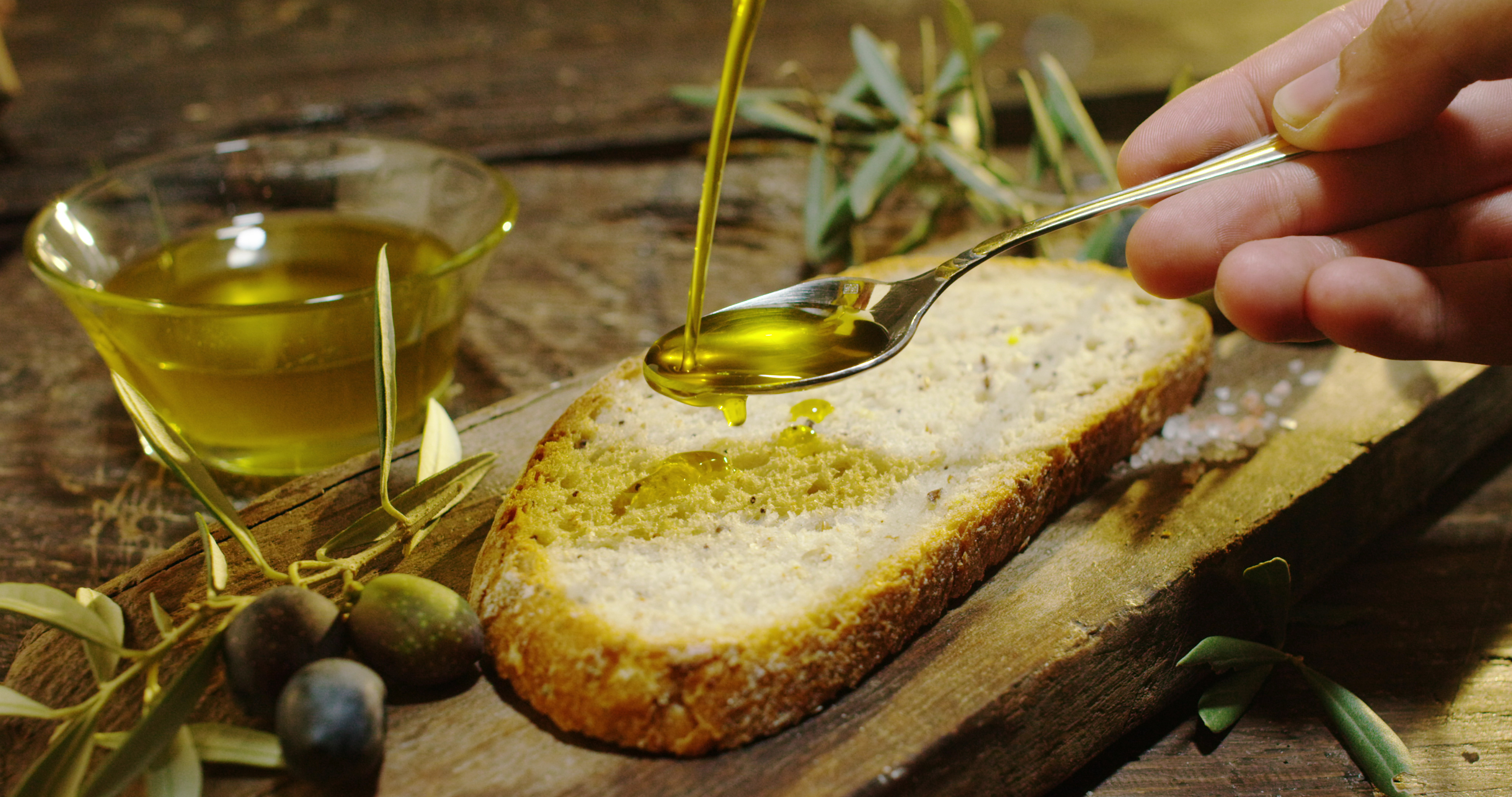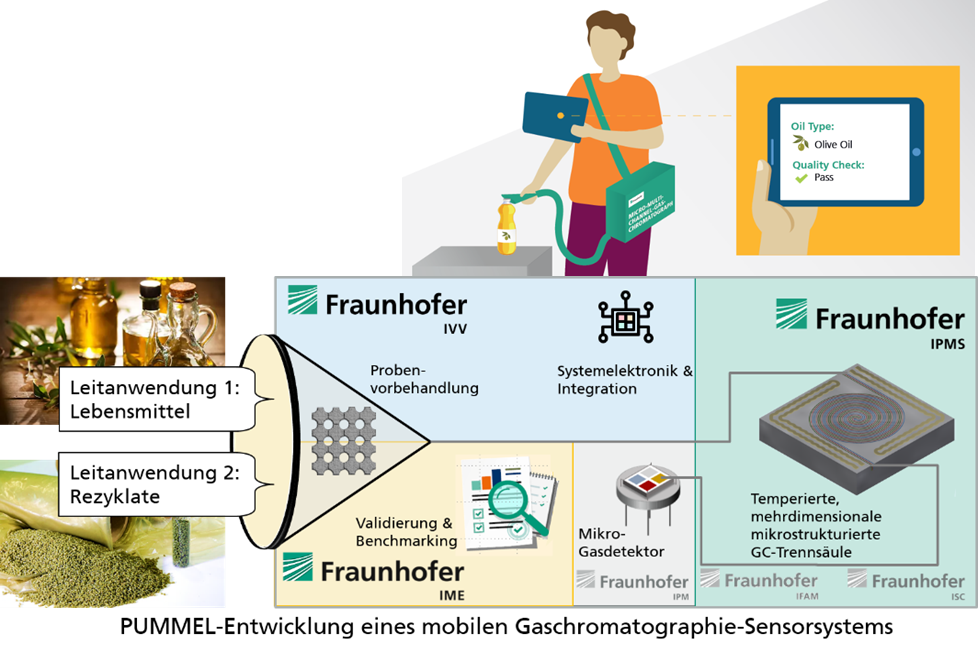"PUMMEL - Point of Use Micro-Multichannel-Gas-Chromatograph"
Adulterated olive oil, food wrongly marked as organic or packaging made of contaminated recycled materials: Food fraud and scarcity of resources are major economic and social topics. While retailers and consumers find it hard or impossible to detect such fraudulent, inferior products, they can cause substantial harm to the health of individuals and to the finances of businesses.
Qualitative and quantitative analyses of volatile organic compounds (VOCs) is advantageous when trying to identify fake food and inferior product quality. Currently, these tests are lab-based and therefore time-consuming and cost-intensive and require specialist staff to operate equipment and evaluate data.
The PUMMEL research project aims to address these issues by developing sensitive and selective point-of-use analytics to detect VOCs tailored to individual cases of application. The project is a collaboration between the three Fraunhofer Institutes IPMS, IVV and IME.

 Fraunhofer Institute for Molecular Biology and Applied Ecology IME
Fraunhofer Institute for Molecular Biology and Applied Ecology IME
